This edition features updates from: Brazil, Australia and the Unified Patent Court (UPC).
The Irides Weekly Update is our round-up of patent litigation news highlights from around the world. Taking its name from the plural of “iris” - a nod to the ability of Irides to see what’s happening around the world.
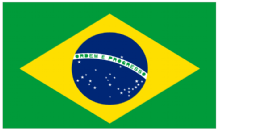
BRAZIL
Brazil Health Regulatory Agency (ANVISA) issues new guidance on compounded GLP-1 peptide drugs.
On 25 August 2025, the Brazil Heath Regulatory Agency (ANVISA) published a resolution restricting compounding of biological (i.e. produced by recombinant methods) GLP-1 peptides drugs to be carried out only by manufacturers whose active pharmaceutical ingredients have been analysed and approved by ANVISA. This covers the popular diabetes and obesity drugs semaglutide and liraglutide.
For synthetically-produced GLP-1 peptide drugs, compounding will only be permitted once the first synthetic version of the drug has been approved by ANVISA.
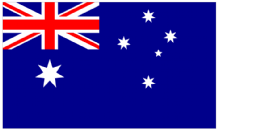
AUSTRALIA
Australian Federal Court issues standard directions to streamline patent disputes.
The Australian Federal Court’s new patent litigation practice note, Intellectual Property Practice Note - Standard Directions for Australian Patent Proceedings (IP-2) (Practice Note), came into effect on 8 August 2025 following a pilot scheme earlier in the year. The Practice Note introduces a set of standard directions which aim to promote the just, quick, inexpensive and efficient resolution of patent disputes by increasing consistency and certainty in procedure. If parties want to deviate from the Standard Directions, they are now expected to agree on any variations, and if this is not possible, mark up any points of disagreement for the Court’s consideration.
The Standard Directions are expected to be issued at the first Case Management hearing which is intended to be heard within 4-6 weeks from the filing of the claim. A trial date will usually be listed 12-18 months after the first Case Management hearing.
The Practice Note encourages the parties to limit the number of patents and claims in respect of which infringement is claimed, and the number of prior art documents and grounds in revocation claims. It also seeks to discourage frivolous applications, by having parties prepare a statement of costs claimed for an application to be filed shortly before the hearing of that application.
The Practice Note is published on the Australian Federal Court’s website.
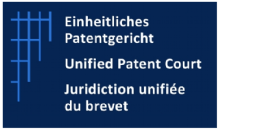
UPC
Court of Appeal clarifies standard for preliminary reference to the CJEU.
[UPC_CoA_380/2025]
On 20 August 2025, the Court of Appeal issued an order in the case of Seoul Viosys v Expert. Previously, Viosys’ patent was invalidated before the Düsseldorf Local Division following Expert’s counterclaim for revocation, and Viosys were ordered to pay costs. Expert submitted an application for costs, but outside the one-month time window following the handing-down of the invalidity decision imposed by r. 151 RoP. Viosys objected to the late service, to which Expert responded that the time limit could not be applied as it would be a violation of the rule of law and the right to an effective legal remedy.
At first instance, the Düsseldorf Local Division dismissed Expert’s costs application as inadmissible for being out of time. Expert applied for leave to appeal and submitted requests for questions to be referred to the CJEU on whether the r. 151 RoP time limit constituted a restriction of the right to reimbursement of costs and whether it was in line with Art. 69 UPCA. Expert also sought to ask if, assuming that r. 151 is a purely procedural provision, it would constitute a violation of Art. 47 and/or Art.17 of the Charter that, despite the granting of a substantive claim for reimbursement of costs under Art. 69 UPCA, there would no procedural possibility of enforcing this claim in Court.
The Court noted that although CJEU references can be sought in instances where a provision of the UPCA or RoP implements or relates to a Directive, a Regulation, or an international agreement where the EU itself is a party (such as the Lugano Convention), and that the UPC must interpret its own substantive and procedural law in a manner that is consistent with EU law, the UPC cannot ask the CJEU to interpret the UPCA. The UPCA is not a regulation or other source of EU law – it is an international agreement between the contracting member states on whose lawfulness the CJEU has no jurisdiction to rule. The Court therefore held that Expert’s requested referrals on the interpretation of Art. 69 UPCA and r.151 could not be made.
In relation to Expert’s proposed question on the interaction of Art. 69 UPCA and r. 151 with the EU Charter, the Court held that the correct interpretation was so obvious as to leave no scope for any reasonable doubt. The fact that a party must follow certain procedural requirements in order to assert its rights does not mean that it does not enjoy judicial protection, unless those rules are so complex and onerous that they went beyond what was necessary to achieve their objective. The time limit of r. 151 was not complex, nor did it go beyond what was necessary for its objectives, which included legal certainty for the parties. There was no need to refer any questions to the CJEU.
The Court of Appeal therefore denied Expert leave to appeal.
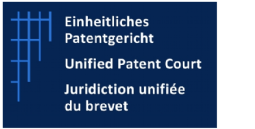
UPC
Hamburg LD clarifies authority of lawyers to accept service.
[UPC_CFI_688/2025]
On 25 August 2025, the Hamburg Local Division issued an order in MED-EL v Zhejiang Nurotron Biotechnology & Nurotron Global. The first defendant, a Chinese company, had previously authorised its representatives to accept service of provisional measures on its behalf, but subsequently stated that it would not accept service by alternative means of the main infringement action.
The panel held that a lawyer which is authorised to represent a party in proceedings relating to an application for provisional measures is not automatically authorised to represent that party in a subsequent main infringement action, even if there is a link between the two proceedings. The panel contrasted their decision with that of the Mannheim Local Division in Interdigital v Disney (UPC_CFI_445/2025, Order of 9 July 2025), where the service of an anti-anti-suit injunction was held to be inextricably linked to the main action, such that the defendants in that action were ordered to accept service upon their representatives.
The Court held that since the first defendant had its statutory seat, central administration, and principal place of business outside the UPC territory, service upon it should be conducted in accordance with the Hague Convention in line with r. 274(a)(ii) RoP.
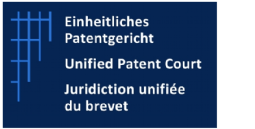
UPC
Munich LD grants third party access to documents.
[UPC_CFI_487/2023]
On 26 August 2025, the Munich Local Division handed down its Order in relation to an application by Taylor Wessing (a law firm) to access documents in the now-terminated proceedings between NEC and TCL. Taylor Wessing had made a request under r. 262.1 RoP to view NEC’s written pleadings and evidence (as redacted versions, for confidential documents), which was opposed by both NEC and TCL.
The panel largely granted the request, holding that Taylor Wessing had submitted a reasoned request. Even though Taylor Wessing’s statement of grounds was brief, its explanation that it had a general interest in inspecting the files as a member of the public were held to be sufficient. Applying the necessary balancing of interests (as set out, for example, in Ocado v Autostore, UPC_CoA_404/2023, Order of 10 April 2025), the panel held that following their termination, the integrity of the proceedings did not outweigh the general public’s interest in accessing the pleadings and evidence.
The panel ordered that Taylor Wessing should be granted access initially to certain written pleadings and evidence in their redacted versions, with further specific exhibits/appendices available to be requested from the registry at a later date.

/Passle/5f3d6e345354880e28b1fb63/MediaLibrary/Images/2025-09-29-13-48-10-128-68da8e1af6347a2c4b96de4e.png)
/Passle/5f3d6e345354880e28b1fb63/MediaLibrary/Images/2025-07-10-13-52-35-189-686fc5a39f23a993118ba1a0.png)
/Passle/5f3d6e345354880e28b1fb63/SearchServiceImages/2026-02-20-09-54-03-745-69982f3bff07facd13d88f69.jpg)
/Passle/5f3d6e345354880e28b1fb63/SearchServiceImages/2026-02-18-09-25-14-317-6995857a406a38553e720e5d.jpg)